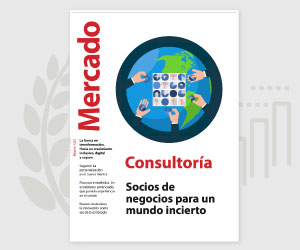El estudio, titulado “Chief Marketing Officers: Un estudio de su presencia en los equipos gerenciales de las principales firmas”, seguramente va a reencender la mecha en el viejo debate de si un CMO debería ser juzgado según métricas tangibles o intangibles.
Los mismos autores — Pravin Nath, profesor de marketing en LeBow College of Business y Vijay Mahajan, profesor en el departamento de marketing de la universidad de Texas en Austin – admiten que la investigación es limitada porque se orienta sólo a mediciones de desempeño financiero, como crecimiento y rentabilidad, y no valor de marca. Por eso piden cautela con la conclusión.
Las métricas financieras que se usan comúnmente para medir el desempeño de un director financiero o un director ejecutivo no se aplican muy bien al gerente de marketing, explica Mahajan. “Son de corto plazo y no sirven para medir el desempeño de alguien que , se supone, debe buscar impacto a largo plazo. ”
Ambos académicos pusieron mucho cuidado en advertir la necesidad de realizar más estudios sobre desempeño del CMO, especialmente considerando la escasez de literatura sobre el tema comparada con lo que existe sobre el CFO y el CEO. Con todo, a cierto nivel fundamental, el marketing es concebido en muchas empresas como motor de las ventas, y lo que este estudio muestra es que el CMO no tiene impacto sobre esa métrica fundamental.
Todas las compañías incluidas en el estudio son públicas con ingresos de por lo menos US$ 250 millones cada una. Los investigadores no revelaron la lista completa, pero dijeron que IBM e Intel están incluídas.
Different titles
Among the companies studied, less than half, 40%, had CMOs in their top-management teams. As a comparison, 97.2% of the firms in the study had a CFO in that team. The actual use of the title CMO was not common, with only about 20% of companies using it; other titles, such as VP-marketing and senior VP-marketing, dominated.
The researchers worked to isolate the factors that lead to CMO presence within top-management teams and found firms are “more likely to have a CMO in the [team] when they have relatively high levels of innovation and differentiation, when they follow a corporate branding strategy, when the CEO is an outsider, and when [the top-management team´s] marketing experience is relatively high.”
The correlation could be especially important for a fast-rising marketing executive considering a job at a company with a top executive team that lacks marketing savvy. “It seems that marketing experience is required in the top management team for a CMO´s role to be consistently appreciated,” the researchers noted.
At least CMOs don´t do harm: “It is important to note that CMOs do not have a negative impact on performance,” the study found.
More than numbers
Whether financial performance is the best or fairest way to judge a CMO´s performance is one issue addressed in a soon-to-be-released study by Booz Allen Hamilton titled “CMO Thought Leaders: The Rise of the Strategic Marketer” based on 15 in-depth interviews with some of the marketing world´s best-known CMOs. The main takeaway is that measuring CMO performance based on financial performance alone is a mistake, according to Andrew Tipping, a co-author of the study.
“Financial metrics alone do not define CMO performance,” he said, adding that the search for a “universal panacea to making marketing accountable doesn´t exist.”
He said other possible expectations for CMO performance should include: “embracing and understanding how to use new media; aligning with the rest of the organization´s imperatives; and making sure the consumer is at the heart of marketing.”
Mr. Tipping added: “Yes, financials should be included, but intangibles have to be, too, and described in a way you can talk about at the end of the year.”
El estudio, titulado “Chief Marketing Officers: Un estudio de su presencia en los equipos gerenciales de las principales firmas”, seguramente va a reencender la mecha en el viejo debate de si un CMO debería ser juzgado según métricas tangibles o intangibles.
Los mismos autores — Pravin Nath, profesor de marketing en LeBow College of Business y Vijay Mahajan, profesor en el departamento de marketing de la universidad de Texas en Austin – admiten que la investigación es limitada porque se orienta sólo a mediciones de desempeño financiero, como crecimiento y rentabilidad, y no valor de marca. Por eso piden cautela con la conclusión.
Las métricas financieras que se usan comúnmente para medir el desempeño de un director financiero o un director ejecutivo no se aplican muy bien al gerente de marketing, explica Mahajan. “Son de corto plazo y no sirven para medir el desempeño de alguien que , se supone, debe buscar impacto a largo plazo. ”
Ambos académicos pusieron mucho cuidado en advertir la necesidad de realizar más estudios sobre desempeño del CMO, especialmente considerando la escasez de literatura sobre el tema comparada con lo que existe sobre el CFO y el CEO. Con todo, a cierto nivel fundamental, el marketing es concebido en muchas empresas como motor de las ventas, y lo que este estudio muestra es que el CMO no tiene impacto sobre esa métrica fundamental.
Todas las compañías incluidas en el estudio son públicas con ingresos de por lo menos US$ 250 millones cada una. Los investigadores no revelaron la lista completa, pero dijeron que IBM e Intel están incluídas.
Different titles
Among the companies studied, less than half, 40%, had CMOs in their top-management teams. As a comparison, 97.2% of the firms in the study had a CFO in that team. The actual use of the title CMO was not common, with only about 20% of companies using it; other titles, such as VP-marketing and senior VP-marketing, dominated.
The researchers worked to isolate the factors that lead to CMO presence within top-management teams and found firms are “more likely to have a CMO in the [team] when they have relatively high levels of innovation and differentiation, when they follow a corporate branding strategy, when the CEO is an outsider, and when [the top-management team´s] marketing experience is relatively high.”
The correlation could be especially important for a fast-rising marketing executive considering a job at a company with a top executive team that lacks marketing savvy. “It seems that marketing experience is required in the top management team for a CMO´s role to be consistently appreciated,” the researchers noted.
At least CMOs don´t do harm: “It is important to note that CMOs do not have a negative impact on performance,” the study found.
More than numbers
Whether financial performance is the best or fairest way to judge a CMO´s performance is one issue addressed in a soon-to-be-released study by Booz Allen Hamilton titled “CMO Thought Leaders: The Rise of the Strategic Marketer” based on 15 in-depth interviews with some of the marketing world´s best-known CMOs. The main takeaway is that measuring CMO performance based on financial performance alone is a mistake, according to Andrew Tipping, a co-author of the study.
“Financial metrics alone do not define CMO performance,” he said, adding that the search for a “universal panacea to making marketing accountable doesn´t exist.”
He said other possible expectations for CMO performance should include: “embracing and understanding how to use new media; aligning with the rest of the organization´s imperatives; and making sure the consumer is at the heart of marketing.”
Mr. Tipping added: “Yes, financials should be included, but intangibles have to be, too, and described in a way you can talk about at the end of the year.”






